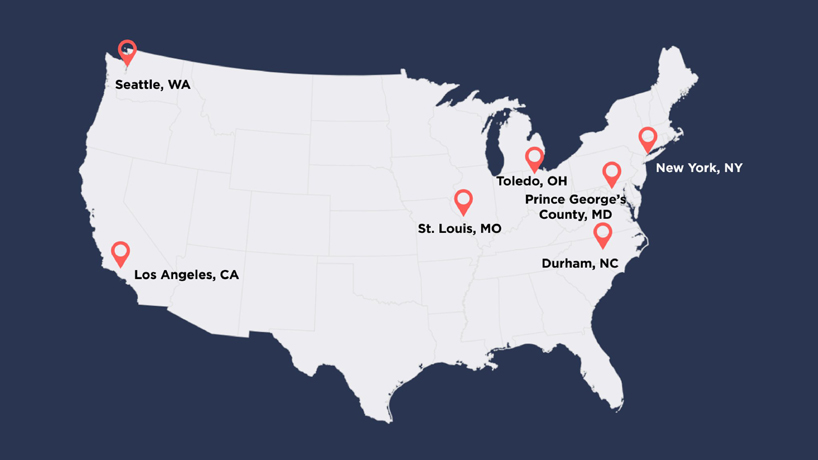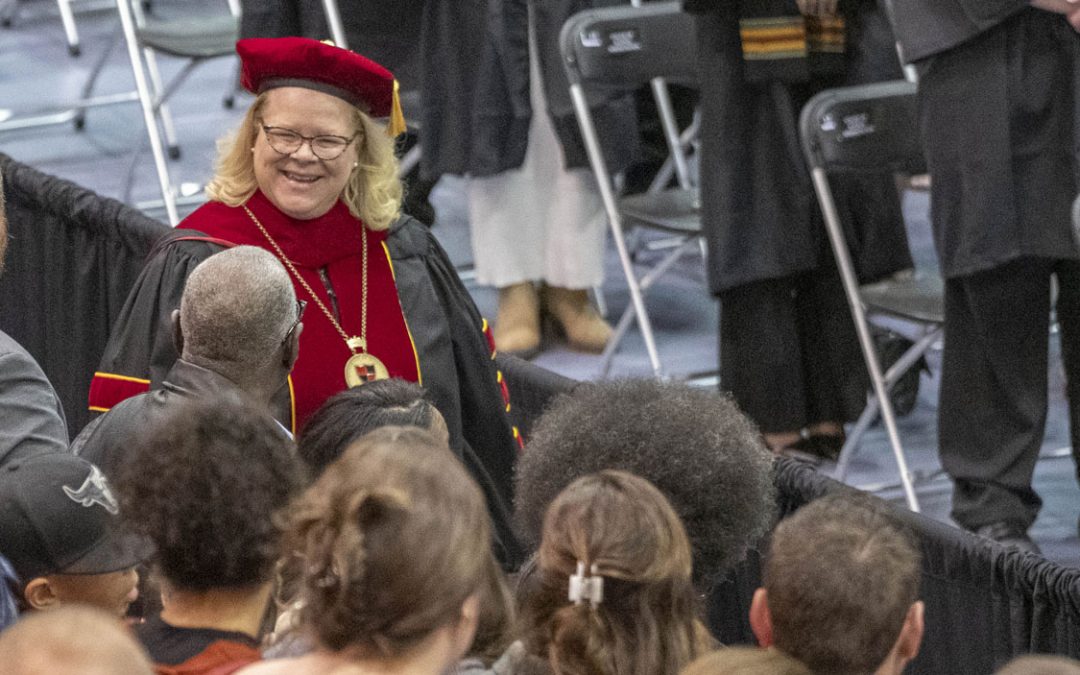
UMSL criminologists and partners in the city of St. Louis are teaming with researchers, data partners and stakeholders in six other cities as part of the Research Network on Criminal Justice. (Image courtesy of the Misdemeanor Justice Project)
There is little dispute about the negative impact that misdemeanor justice has had on people across the nation.
Faculty in the Department of Criminology and Criminal Justice at the University of Missouri–St. Louis are aiming to take a data-based approach to studying solutions by teaming with researchers, data partners and stakeholders in New York; Los Angeles; Seattle; Durham, North Carolina; Toledo, Ohio; and Prince George’s County, Maryland, to form the Research Network on Misdemeanor Justice.
The network will use data analytics to inform policy discussions and reform regarding trends in the enforcement of lower-level offenses.
“Bringing these sites together to examine lower-level offenses is now more important than ever before as we have reached a critical juncture in criminal justice reform,” said Meredith Patten, the executive director of the Research Network. “We are excited to work on a local level with each site and are looking forward to seeing how cross-site analyses can inform the national discourse.”

Associate Professor Lee Slocum is leading UMSL’s involvement with the Research Network on Misdemeanor Justice with contributions from Professors Richard Rosenfeld and Beth Huebner. (Photo by August Jennewein)
Associate Professor Lee Slocum is leading UMSL’s involvement with the network with contributions from Professors Richard Rosenfeld and Beth Huebner. They are working with support from the city partners – the St. Louis Metropolitan Police Department, the mayor’s office and the St. Louis Municipal Court.
“Recent media attention has centered on police use of force, but most police-citizen encounters are routine and related to the enforcement of local ordinances and misdemeanors,” Slocum said. “While minor in nature, police activity targeted at low-level offenses has serious consequences. Misdemeanor arrests and ordinance violations clog detention centers and the court system and can hurt the legitimacy of the police. They also disproportionately harm people living in poverty and people of color.”
Through a generous $3.25-million, three-year grant from the Laura and John Arnold Foundation, the Research Network will build upon the success of the Misdemeanor Justice Project at John Jay College of Criminal Justice in New York. By conducting research and disseminating information about low-level criminal offenses, it helped shape the local dialogue and criminal justice policy reform in New York City, which has seen decline in enforcement actions and admissions to the Department of Correction.
The national alliance of seven jurisdictions will examine trends in the enforcement and disposition of lower-level offenses at a local level and, for the first time, at a cross-jurisdictional level. The Research Network aims to build data infrastructure at a local level. The network also seeks to inform smarter criminal justice policies that enhance public safety, increase public trust in the police and implement fiscally responsible policies particularly surrounding behaviors that involve officer discretion.
The selection criteria for the six new sites included a commitment toward evidence-based reform in their local jurisdiction and the availability of high-quality administrative data on arrests for lower-level offenses, summonses, pedestrian stops and case outcome data, including pretrial detention. The Research Network received 39 proposals, indicative of an appetite for research in this arena.
In addition to UMSL and John Jay College, the local research partners are University of California, Los Angeles; University of Toledo; North Carolina Central University; Seattle University; and University of Maryland.
“To see the work of the Misdemeanor Justice Project expand from New York City to six other jurisdictions is very exciting,” said Preeti Chauhan, assistant professor at John Jay College and the principal investigator of the Research Network. “We are looking forward to replicating the New York model to these sites and believe the results will guide smarter criminal justice reform.”
The Research Network is fully committed to working with criminal justice stakeholders to obtain accurate data, provide objective analyses and disseminate findings to key stakeholders in the community, renowned scholars and policymakers to spur a national dialogue on this high-volume activity in the criminal justice system.














